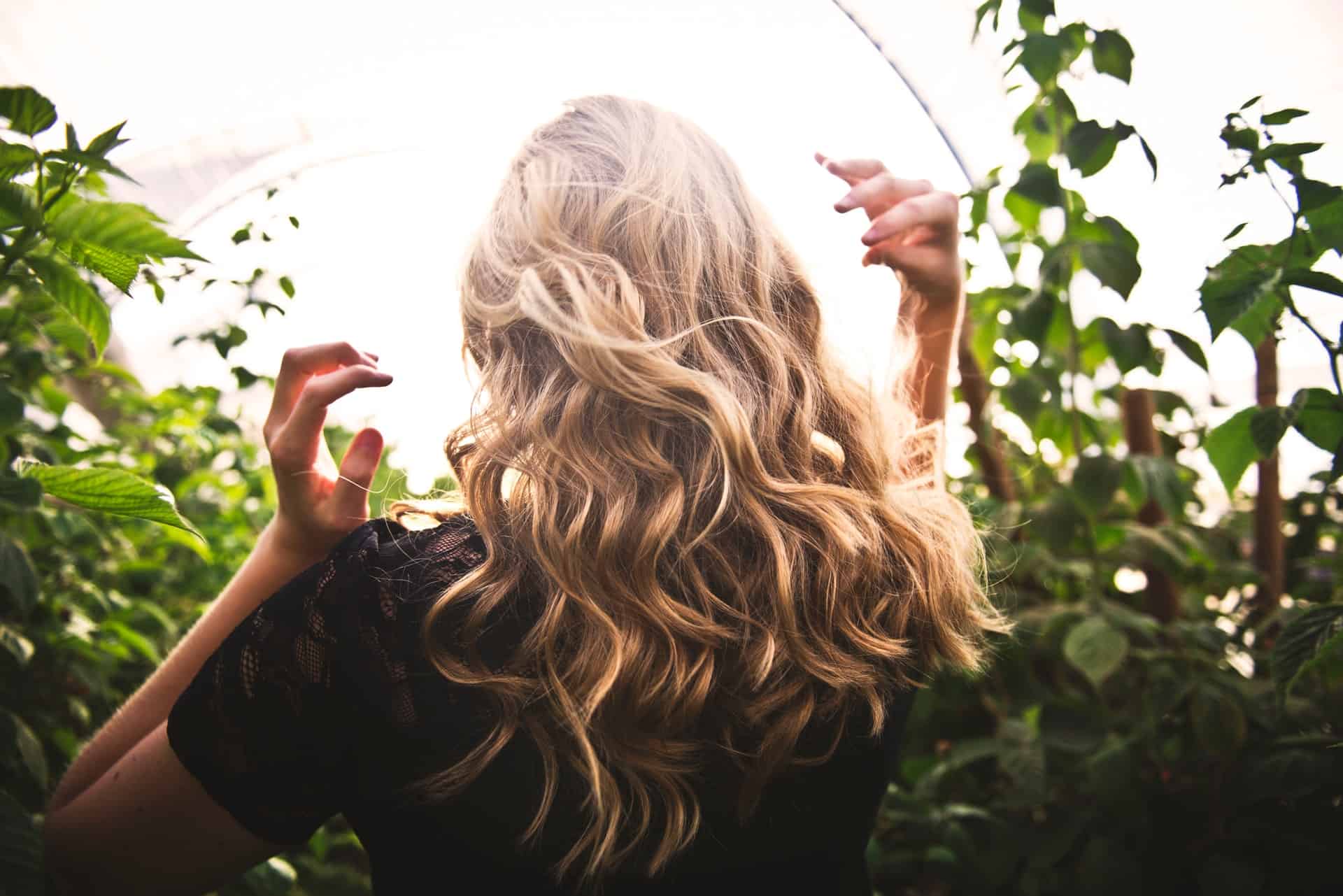Do you have thinning hair that won’t stop falling out? Or maybe you just wish that you had thicker and fuller hair? If so, you may want to take a good look at your diet and what you are eating. Many people are not consuming foods that contain the best vitamins for hair growth.
Ensuring that we get the right amount of nutrients in the form of vitamins is very important for our health. But it is not just vital for our overall health, more specifically, it is crucial for healthy hair.
Having fantastic hair relies on so many different bodily systems and functions to be operating like a well-oiled machine. If one system goes down or is lacking, hair loss and thinning could be the first sign.
And it is a noticeable sign because we view hair as a sign of health and beauty!
Contents
Do Hair Vitamins Work?
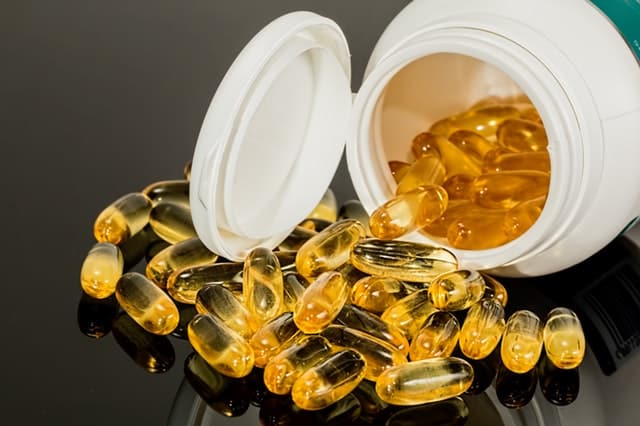 The answer is yes, IF you are deficient in the particular nutrient. There are many reasons for hair loss and thinning of the hair. One of the main ones is having a nutritional deficiency. By correcting the lack of a particular nutrient, you will help the body restore balance and work properly. This will support hair growth and help reverse hair loss naturally.
The answer is yes, IF you are deficient in the particular nutrient. There are many reasons for hair loss and thinning of the hair. One of the main ones is having a nutritional deficiency. By correcting the lack of a particular nutrient, you will help the body restore balance and work properly. This will support hair growth and help reverse hair loss naturally.
So, what is the best way to tell if you have a nutritional deficiency?
The best way to tell if you are not getting enough of your vitamins is to see your doctor. He or she can order a test that will look at your individual nutritional markers and go over the results with you.
In some states, you can even order the test online and go over the results yourself. The first step is knowing what vitamins are good for hair growth. Because of this, many hair loss shampoos contain one or more of the vitamins listed below. We looked at all the ingredients to find the best organic hair loss shampoos with quality ingredients. In you are interested in reading the 5 best options for a hair loss shampoo that can help regrow hair, check out this article.
7 Best Hair Growth Vitamins (and Minerals)
In this article, we have gathered some of the best hair vitamins that are scientifically proven to help hair grow thicker and fuller. They even help prevent hair loss.
We will help you identify some food that you can eat that will provide more of that particular vitamin or mineral. Some of these foods are natural DHT blockers, which can help stop hair loss both ways. Check out the full list of DHT blocking foods.
Also, if you find it easier to supplement them directly, many of them are already in the best hair growth supplements. In that case, we have done the work to find the best options. All the suggestions we provide are all very highly reviewed and contain the best ingredients.
So without further due, here are the vitamins.
1. Calcium
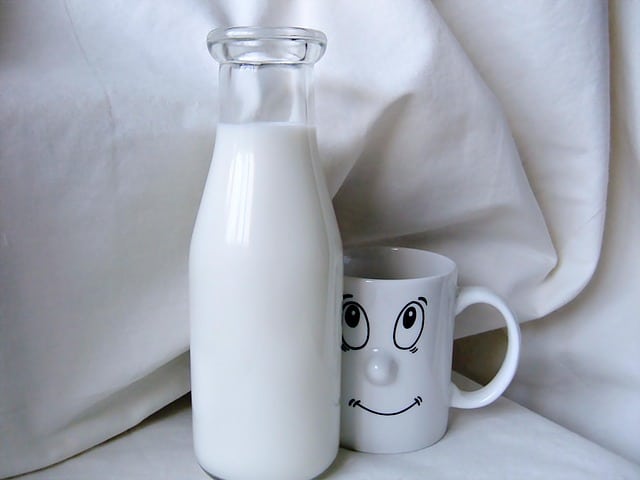 Did you know that there is 200 times the concentration of calcium in the hair than in the blood?
Did you know that there is 200 times the concentration of calcium in the hair than in the blood?
It is an essential nutrient that the body needs for various functions. While it is most known for its role in bone health, it is required for keeping hair in its proper state. Research has confirmed that it is essential for hormonal secretion, blood vessel function, and muscle functions. All of those are very important for hair growth which makes it one of the best vitamins for hair loss.
Many are deficient in calcium. The recommended daily intake is 1000mg for healthy adults under 50 years old and 1200mg for adults over 50. (1)(2)
Some foods are high in it include dairy products, kale, broccoli rabe, white beans, and almonds.
If you are looking for a supplement, I like the one from Garden of Life. Not only is it organic, but it also contains Vitamin D and K2, which are also crucial for hair health.
2. Zinc
Zinc is known for its role in protein synthesis, metabolic functions, and cellular functions.
“With regard to hair loss, zinc is a potent inhibitor of hair follicle regression, and accelerates hair follicle recovery.”(7) This means that it can not only slow hair loss down but can also help with hair growth.
In a particular study, researchers found that patients in the group with hair loss had significantly lower levels of zinc than a control group. (7)
Zinc is an essential trace element that the body cannot produce alone. It must come from the diet. Meat, hemp seeds, pumpkin seeds, pine nuts, beans, and oatmeal are all high in zinc.
3. Vitamin K2
This lesser-known vitamin is essential for maintaining blood homeostasis and heart health.
Most relevant, it is essential for directing calcium to where it needs to go. Without K2, calcium causes buildup. Because it is rigid, it can accumulate in blood vessels, arteries, and hair follicles and cause problems.(3)
One significant issue arises when it accumulates in blood vessels and restricts blood flow, because blood flow is vital to hair growth. Secondly, calcium buildup in hair follicles can prevent essential nutrients from reaching the follicle, which can slow and stop hair growth.
Fermented foods such as natto, green leafy vegetables, eggs, meat, and dairy all contain Vitamin K2.
Patients on certain medications have to be careful when supplementing K2. This is especially true for patients on thinning medicines such as Warfarin and antibiotics. Otherwise, supplementing K2 is considered safe. In published studies, researchers have observed positive health results with daily dosages ranging from 32-180 mcg.(3)
The best vitamin K2 supplement is Mary Ruth’s K2 drops. Being that it is liquid, it allows for easier absorption. Also, it is derived from plant products and non-GMO natto(MK-7), which is much better than the synthetic options.
4. Vitamin D
Vitamin D is another one that is important for hair growth.
First off, studies have shown that there is a relationship between alopecia areata and low vitamin D levels. Alopecia areata is where the immune system attacks the hair follicle and leads to hair loss.
Secondly, studies have shown that supplementing with vitamin D can improve symptoms of androgenetic alopecia and telogen effluvium, which are two other common types of hair loss.
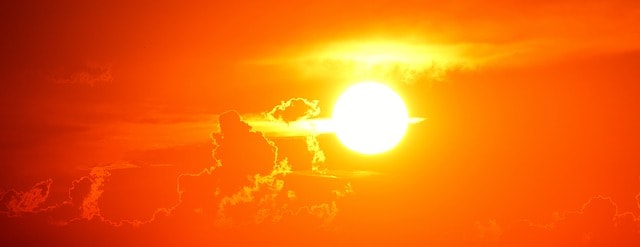
And finally, vitamin D helps to regulate the immune system, is an anti-inflammatory, and also helps to maintain proper levels of calcium and phosphorous.(5)
In other words, it is extremely important for your overall health and hair growth.
Most of us are aware that we get most of their vitamin D from sunlight. So, many people that live further from the equator and with darker skin often have a deficiency. Also, it is found in certain food such as mushrooms, cold water fish, and dairy products.
For supplementation, there is a point that you can have too much vitamin D. The Office of Dietary Supplements say that the upper limit should be 4000IU per day, which should be harmless to most adults. Most men and women take around 1000IU per day. This amount usually helps to boost levels enough. Again, consult with your doctor before starting any supplementation plan so you can get your levels checked and let them know of any medication you are taking because there could be conflicts.(6)
5. Iron
Did you know that iron deficiency is the most common nutritional deficiency in the world?
And “iron deficiency has been associated with hair loss as in alopecia areata, androgenetic alopecia, and telogen effluvium.”(1) Most notably, iron deficiency is most common in women with hair loss.
They believe that iron works to influence enzymes that are responsible for hair growth. Also, it assists in metabolism and supplies energy to cells that are dividing. (1)(5)
Some foods that are high in iron include white beans, red meat, lentils, spinach, and oysters.
6. Magnesium
Magnesium is known for its vital role in protein synthesis, but it is also great at regulating calcium buildup. Calcium deposits on the scalp can clog hair follicles and slow hair growth. The magnesium counteracts this and allows for improved circulation.
Also, magnesium is great for sleep and helping to relieve stress.
Have you ever heard of the home remedy of spraying magnesium oil on top of your head? Well, it seems there may be some truth behind that. Patients that are deficient in magnesium often experience better hair growth by supplementing with this mineral.
Liquid magnesium oil applied to the skin allows for the best absorption. This way, the skin can allow whatever amount is needed to pass through it and the rest will be left on top. That is why we recommend the following magnesium oil spray.
7. Vitamin E
We all know by now that vitamin E is excellent for your skin. But did you know it is great for hair health too?
Vitamin E is an antioxidant and anti-inflammatory powerhouse. This is very important when it comes to immune cells because they are vulnerable to oxidative stress. Also, vitamin E can prevent damage from free radicals.
Researchers that studied patients with alopecia areata noticed that they had significantly lower amounts of vitamin E than the control group. This could be very important in maintaining a beautiful thick head of healthy hair.(5)
Topical application of vitamin E seems to be the best way to enjoy the benefits of this vitamin and could help hair growth.(8) Two good choices of oils high in Vitamin E are castor and coconut oil. For this reason, they are often included in the top oils for hair growth.
8. Vitamin C
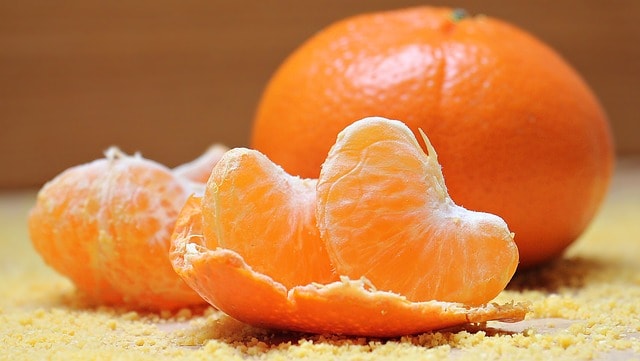 Vitamin C is a powerful antioxidant that plays a significant role in the production of collagen.
Vitamin C is a powerful antioxidant that plays a significant role in the production of collagen.
Also, it is essential in regulating the absorption of iron in the intestines. Therefore, it is necessary for patients that have hair loss related to an iron deficiency.(5)
Citrus fruits, strawberries, broccoli, tomatoes, and bell peppers are all high in Vitamin C.
9. Niacin, Vitamin B3
Niacin is on this list of vitamins for hair growth because of its role in DNA and cell repair. Because of this, it helps repair hair damage and even can prevent hair from becoming dull. It also plays a role in nourishing and hydrating the scalp.
In a 6-month pilot study that was conducted on women with female pattern alopecia, the result showed that topical application of niacin increased hair fullness.(9)
10. Biotin, Vitamin B7
Biotin seems to be all the buzz when it comes to healthy and beautiful hair. You see it advertised in shampoos and hair growth supplements everywhere. But does it live up to the hype?
Well, biotin helps with the metabolism of glucose, fatty acid, and amino acids. And certain people may be prone to biotin deficiency such as alcoholics, pregnant women, those on certain medications, and people who consume raw eggs. Symptoms of biotin deficiency include hair loss, skin rashes, and brittle nails. (5)
While studies conducted on biotin supplementation have not yielded positive results, many people claim that it helps to grow thicker and fuller hair. Because doctors believe there is no toxic level, it may be worth trying for hair growth.
11. Selenium
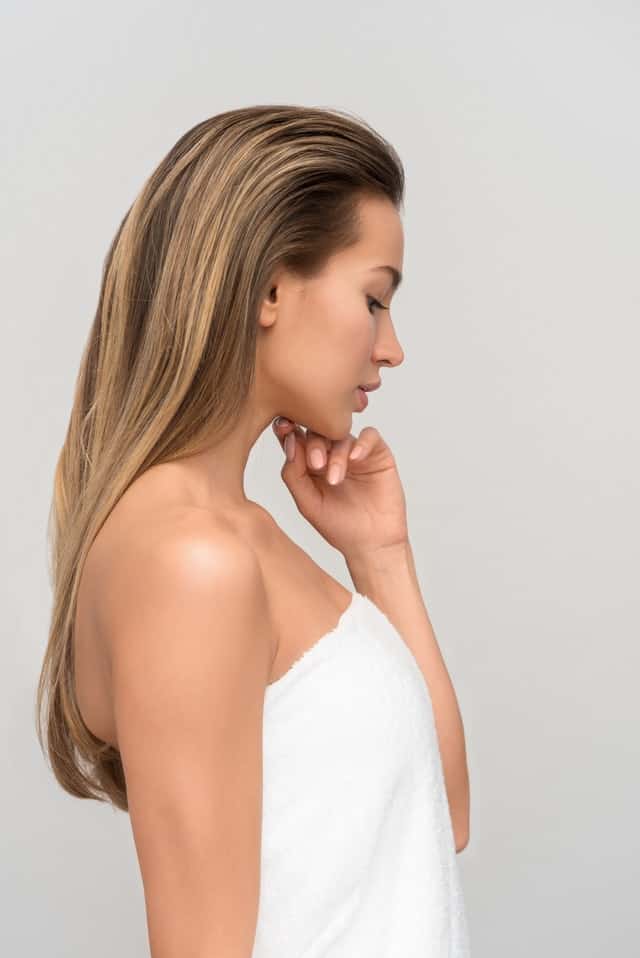 Selenium is on this list because it plays a role in the formation of thyroid hormones.(1) If you are unaware, problems with the thyroid often result in hair loss.
Selenium is on this list because it plays a role in the formation of thyroid hormones.(1) If you are unaware, problems with the thyroid often result in hair loss.
It is also an antioxidant and plays a role in protein synthesis. Although selenium deficiency is less common, it can exist in areas where there is depleted soil. Most of the time, people get an adequate amount from their diet.(5)
Be careful with supplementing with selenium because overexposure can also cause hair loss. Consult with your doctor if you believe you have a selenium deficiency.
12. Silicon
Silicon is the second most abundant element on planet Earth. Scientists believe that “concerning the hair, it is suggested that strands with higher silicon content tend to have lower falling rate and higher brightness.”
They believe that it helps with hair growth is due to its role in collagen synthesis.
In one particular study, human participants were given a silicon supplement for 20 weeks. At the end of the study, researchers noted that there were positive results on the skin, hair, and nails.(4)
Some foods that are high in silicon are whole grains, bananas, beer, and garlic.
Supplementation of silicon is more prevalent in Germany, France, and Belgium. The versions of the supplement they commonly use are monomethyl silanetriol (MMST), colloidal silicon, and choline-stabilized orthosilic acid. Researchers suggested that the upper limit of silicon supplementation is 10.5/mg per day.
Conclusion
Vitamins and minerals are an important part of our health. They help the body perform different processes and functions in their own unique way.
When certain nutrients are lacking in our diet, there usually is a problem that is associated with it. Sometimes that results in hair loss.
By being aware of the nutrients that have an impact on hair growth and hair loss, you can consult with your doctor or nutritionist to come up with a plan to fix any deficiencies. This will go a long way in improving your overall health, and you may wind up with a thick head full of healthy hair in the process.
References
(1) https://www.ncbi.nlm.nih.gov/…
(2) https://www.ncbi.nlm.nih.gov/…
(3) https://www.ncbi.nlm.nih.gov/…
(4) https://www.ncbi.nlm.nih.gov/…
(5) https://www.ncbi.nlm.nih.gov/…
(6) https://ods.od.nih.gov/factsheets/…
(7) https://www.ncbi.nlm.nih.gov/…
(8) https://lpi.oregonstate.edu/…
(9) https://www.ncbi.nlm.nih.gov/…
